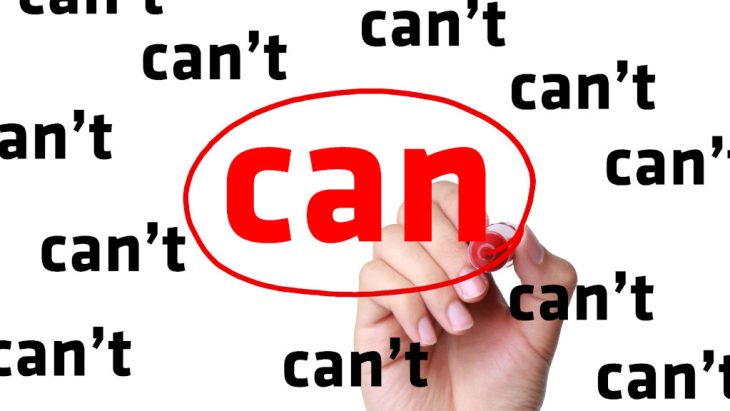How to Stay Clean and Sober: 27 Proven Recovery Tips That Actually Work

Recovery is a journey, not a destination. Maintaining sobriety is about more than just completing detox or inpatient treatment programs. It is a lifelong process. Plus everyone achieves sobriety at their own rate, and it looks different from person to person. Knowing how to stay clean is a critical part of the recovery process.
But one thing is true for everyone: If you want to achieve sobriety long-term you will have to learn habits outside of using drugs or alcohol to reduce your risk of relapse. It is also important to gain emotional resilience and have a good network of support in your corner.
Need guidance on getting clean? Call today.
How to Get Clean and Maintain Sobriety
1. Start With a Strong Detox Plan
Detox is the first and most crucial step in recovery. A strong plan helps you detox safely, reduce risks, and prepare for long-term sobriety.
How to Create a Strong Detox Plan
Get a Medical Evaluation
See a doctor or addiction specialist to assess your physical and mental health before detox.
Choose the Right Setting
Decide between inpatient or outpatient detox based on your addiction severity and home environment.
Line Up Support
Let trusted people know you’re detoxing so they can offer emotional or practical support.
Clear Your Schedule
Take time off and avoid stress—detox can be physically and emotionally demanding.
Prepare Physically and Mentally
Start hydrating, eating well, and tapering substances under medical guidance.
Build a Detox Toolkit
Gather comfort items: snacks, blankets, journals, calming apps, and emergency contacts.
Plan for What’s Next
Set up therapy or treatment to start after detox—don’t wait until symptoms end to make a move.
2. Understand Your Personal Triggers
It is important to understand your personal triggers so you can prevent relapse. You will need to learn how to identify external triggers, which are people, places, and routines that could cause you to relapse. It is equally as important to identify emotions and thoughts, also known as internal triggers.

Tip: Journal your triggers to track patterns. This will help you understand where triggers are coming from, which can help you avoid relapses.
3. Recognize the Early Warning Signs of Relapse
In addition to identifying your personal triggers, it is equally as important to recognize early warning signs of a relapse. There are three different stages of the relapse process.
Emotional (Stage 1): You are not actively thinking about drugs or alcohol, but your emotions and certain behaviors could be setting you up for a release.
Those warning signs include:
- Bottling up your emotions
- Not going to recovery meetings
- Isolating yourself
- Mood swings
- Poor self care
Mental (Stage 2): This stage can be best described as a war going on inside one’s mind. In this stage, there is a part of you that wants to use, while the other part doesn’t. Fantasizing about using is not uncommon at this stage.
Warning signs in this stage include:
- Cravings or physical and psychological urges to use drugs and/or alcohol
- Thinking about people, places, and things associated with past use
- Hanging out with old friends who use alcohol or other drugs
- Minimizing consequences of past use or glamorizing past use
Physical (Stage 3): This happens when you don’t get help during stages one and two, which causes physical use to occur.
- If you find yourself struggling in stages one or two, please consider seeking help before you get to stage three and start the cycle of abuse over again.
4. Prepare for Post-Acute Withdrawal Syndrome (PAWS)
PAWS is a predominantly negative affective state that begins in early abstinence and can persist for 4–6 months or potentially longer when getting sober from drugs or alcohol. PAWS symptoms can include anxiety, dysphoria, sleep disturbance, cravings, cognitive impairment, and irritability.
Tips to manage PAWS symptoms:
- Stay hydrated
- Engage in individual counseling
- Maintain a healthy diet
Daily Habits that Support Long-Term Recovery
5. Create a Structured Daily Schedule
Creating a daily routine or schedule can be beneficial for living a drug-free life. Having a routine can make you feel like you have purpose. It also increases productivity which can make you feel like you have your life together and are accomplishing goals you have set for yourself.
Here are some ideas to consider for creating your own schedule:
- Set regular wake times and bed times
- Plan your meals and snacks
- Include time for self-care
- Schedule therapy or time for group meetings
- Include time for exercise
- Make time for your hobbies or special interests
6. Prioritize Good Nutrition
Not only is prioritizing good nutrition good for your body, it can also be helpful for obtaining and maintaining sobriety. You should be eating brain-healthy foods like leafy greens, fatty fish, and complex carbs. It could also be a good idea to reduce your sugar intake and watch the amount of processed foods that you consume.
7. Exercise Regularly
Exercising daily will boost dopamine naturally. This is the feel-good chemical produced in your brain. Therefore, regular exercise helps keep your body healthy and improves your mood. These two benefits will help reduce cravings.
8. Get Quality Sleep
Quality sleep starts with setting healthy strategies like reducing screen time and having a personal bedtime routine. If you need additional support, there are over the counter medications and supplements like melatonin and magnesium that you can take to help with this.

With the right amount of sleep (7-9 hours per night for adults), your body gets the rest it needs, which is crucial for physical and mental health. You’ll be better able to cope with challenges when they arise.
9. Practice Mindfulness or Meditation
There are natural methods to help stop substance use and stay clean mentally. You can start engaging in mindfulness or practice meditation. Apps and self-guided videos are available to help you with this.
10. Stay Hydrated
Staying hydrated has many benefits, both physical and mental. For example, it prevents fatigue and mental fog. This is a simple but powerful habit to start incorporating into your daily life.
Experts recommend that men drink about 15 cups a day and women drink about 11 cups per day.
Tip: Keep a water bottle handy at all times, so you’re sipping throughout the day to stay hydrated.
Support Systems and Relationships
11. Build a Sober Support Network
Building a sober support network can help you stay sober. There are different options to choose from when it comes to this. You can connect with sponsors who will hold you accountable and be there for you. You can also engage in groups like AA or NA which can lead you to making positive friendships with others who are also in recovery.
12. Get Professional Counseling or Therapy
Another way to avoid relapse is by engaging in individual counseling or therapy. This will provide ongoing support as you encounter challenges in recovery.
Don’t let yourself relapse. Call now for help.
It is also important to treat co-occurring disorders. Most providers will offer different modalities such as cognitive behavioral therapy and trauma therapy to address these issues such as anxiety or depression. Treating both addiction and any other disorders is important since they always interact with one another.
13. Join Peer Support Groups (12 Step, SMART, etc.)
In most communities, there will be options for peer support groups, and they will have in-person and online options available. Support groups such as AA, NA, and SMART Recovery offer community with others on similar paths so you don’t feel alone in recovery. They can also provide accountability.
14. Avoid Toxic Relationships and Environments
It is okay to leave behind the people who enable your use. It is healthy to set your own boundaries for healing.
Tools, Rewards, and Mental Health Strategies
15. Track Your Progress (Apps or Journals)
Track your progress using apps like I Am Sober or Sober Time. You could also engage in a 30-day recovery challenge.
16. Celebrate Milestones
Use positive reinforcement by giving yourself non-substance related rewards. These can be big or small. The important thing is to acknowledge your progress and celebrate.
17. Practice Self-Compassion and Forgiveness
It’s important to process any shame or guilt you experience. Helpful tools include therapy, journaling, and spiritual practice. Giving yourself grace and letting go of past mistakes will free your heart and mind to move forward.
18. Avoid Overcommitment
Don’t rush back into a high-pressure lifestyle. Take it slow and focus on healing.
19. Limit Social Media Triggers
Create a digital environment that encourages mental health. This probably means limiting your exposure to social media, to avoid triggers and stay focused on your recovery and develop new healthy habits.
20. Try Creative or Expressive Outlets
Find healthy ways to release your emotions. Art, music, writing, or dance are great outlets, and you might discover hidden talents!
Staying Clean During Hard Moments

21. Create a Craving Rescue Plan
Write out steps to take when you experience cravings. Some helpful actions might include:
- Call a sponsor
- Go for a walk
- Distract yourself
- Use affirmations for encouragement
22. Volunteer or Help Someone Else
Helping others builds meaning and keeps you accountable. Find a way to serve someone, whether it is someone else in recovery who needs support or people in the community that you can serve through volunteering opportunities.
23. Reconnect with Spirituality or Purpose
Faith-based recovery or simply exploring meaning can guide your behavior in positive ways.
24. Practice Anger and Emotion Regulation
Many tools are available to help you handle frustration and anger without substances. To process these strong emotions without relapse, consider breathwork, journaling, or therapy techniques.
25. Recognize and Manage “Sobriety Fatigue”
Don’t burn yourself out by trying to be perfect. Acknowledge exhaustion and admit when you need help, more rest, or other support on your journey.
Aftercare and Long-Term Support
26. Create a Personal Relapse Prevention Plan
This is a written document of what to do in high-risk situations. Here’s what to include:
- Design a Sober “Go-To Routine”
Create a repeatable sequence of comforting or motivating actions (e.g., drink tea, call sponsor, go for a walk, read a favorite quote). This becomes muscle memory when cravings hit—removing decision fatigue.
- Use a Sobriety Compass or Values List
Write down three to five values that define your recovery (e.g., “I want to be a present parent,” “I value self-respect”). Keep them somewhere visible. When tempted, ask: Will this choice align with my values?
- Pre-Write a “Note to Future Me”
Craft a short letter to yourself when you’re feeling strong. Remind yourself why you quit and how much pain substance use caused. Read it when you’re struggling. Emotional anchoring can stop impulsive relapse.
- Create a “Relapse Insurance” Contact Chain
Line up three people you can contact if you’re tempted to use. Knowing you have to make three calls before using slows down automatic behavior and builds accountability.
- Role-Play Risky Scenarios in Advance
With a sponsor or therapist, rehearse what you’ll say and do in difficult situations (e.g., running into an old substance-using friend, being offered a drink). Mental rehearsal builds confidence and reduces panic.
- Develop a High-Stress Protocol
Relapse is often driven by stress overload. Outline what to do when your stress hits “10”—perhaps cancel obligations, go offline, go to a meeting, or call your therapist.
- Track Your Triggers with a “Craving Journal”
When you experience a trigger, log the time of day, your emotional state, the environment, and the intensity of cravings. Over time, this reveals patterns you can disrupt with targeted strategies.
27. Commit to Recovery for Life
What does it look like to commit to a lifetime of recovery? Integrate these elements into your life, and you’ll find that these help you maintain your commitment to sobriety and allow you to continue moving forward.
- Make Recovery Part of Your Identity

Shift from “I’m trying to stay sober” to “I live a sober life.” Identity-based change is more sustainable than behavior-based change—it’s not something you’re doing, it’s who you are becoming.
- Serve as a Sponsor or Mentor
Helping others stay sober deepens your own commitment. It reminds you of how far you’ve come, reinforces accountability, and turns your recovery into a source of leadership.
- Celebrate Sobriety Anniversaries Every Year
Whether it’s a coin, a dinner, a journal entry, or a quiet moment of reflection, treating your sober date like a birthday keeps it alive in your heart and mind.
- Stay Active in the Recovery Community
Even if you feel stable, keep attending meetings, volunteering, or participating in alumni events. Community keeps you rooted and resilient—even during good times.
- Keep Evolving Your Recovery Plan
What works in year one may not work in year five. Revisit your relapse prevention plan, values list, and goals regularly to adapt as you grow.
- Reinvest in Other Areas of Life
Long-term recovery thrives when you build a life that’s too good to leave behind. Set goals in health, career, relationships, spirituality, or creativity—and chase them with the energy you once gave to substances.
- Create a Personal Recovery Legacy
Think long-term: What story do you want your recovery to tell? Consider writing a blog, recording your journey, or starting a project that helps others.
- Keep a “Why I Stay Sober” List
Update it yearly. Include reasons big and small—family, freedom, peace of mind, not waking up sick. When tempted, read it aloud.
- Accept That There’s No Finish Line
Instead of chasing perfection, focus on progress. Recovery doesn’t mean you won’t face challenges; it means you’re equipped to grow through them.



